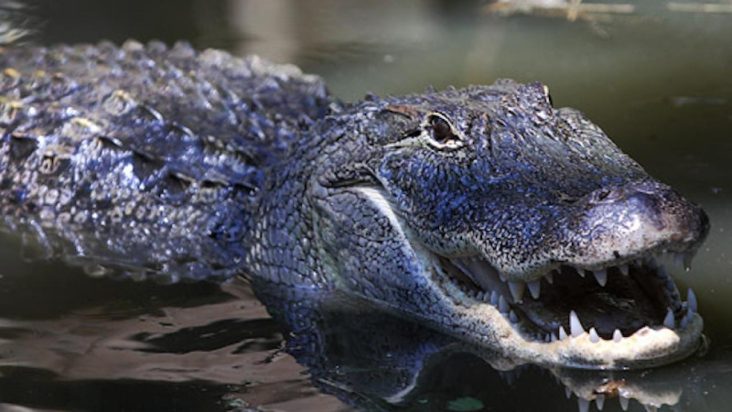Alligator encounter advice offered
by May 30, 2024 10:09 am 672 views

Alligators have been roaming the Earth for more than 37 million years, according to the fossil record. The apex predators can grow to 12-feet long and weigh more than 1,000 pounds.
American alligators roam from as far south as the Rio Grande River in Texas to North Carolina to the east, according to the Smithsonian’s National Zoo and Conservation Biology Institute. During the last several decades, alligators have been moving into southern Arkansas and are slowly but surely making their way further north in the Natural State.
Several years ago a nine-foot long alligator was found in a row crop field in Jackson County near Newport. When the Jackson County Sheriff’s Department and the Arkansas Game and Fish Commission went to investigate, another small alligator was found in a nearby drainage ditch. Both escaped before authorities could capture and relocate them.
In Miller County, spotting one of these reptiles is just part of life. Jen Caraway, Miller County extension staff chair for the University of Arkansas System Division of Agriculture, said they’re not uncommon in areas where waterways are essential to agricultural operations.
“There’s not much you can do if you encounter one, other than stay clear and call it in,” Caraway said.
Decades ago, American alligators in the United States were hunted nearly to extinction. In 1973, they were identified in the Endangered Species Act, but were ultimately removed from the list in 1987 once their population numbers rebounded.
Becky McPeake, extension wildlife biologist for the Division of Agriculture, said alligators have managed to thrive throughout much of the south in the intervening years.
“We’ve had great success reintroducing them to Arkansas,” McPeake said. The state lies at the northern edge of the animal’s natural range, she said, with most of the northern half of Arkansas being simply too cool an environment for alligators to survive.
Sometimes, McPeake said, alligators are just part of the neighborhood, including one known specimen that nests near a site of frequent field research.
“Whenever we go out there to do any kind of research or environmental survey, the first thing we do is locate it,” she said. “Once we know where it is, we can avoid it.
“Honestly, they prefer to avoid people,” McPeake said. “It’s when they become used to being around people that they become dangerous. Some people want to feed them for some strange reason. Please don’t. It can have terrible consequences for both people and pets.”
McPeake said if a person spots an alligator, they should stay at least 60 feet away from it, whether it’s on land or in a body of water. She said one way to help livestock avoid crossing paths with alligators is to make sure they have their own secure sources of drinking water.
“We recommend that producers maintain water tanks for their livestock, rather than letting the livestock drink from ponds,” she said.
In November 2023, the Arkansas Game and Fish Commission, in partnership with the U.S. Department of Agriculture, introduced a new nuisance wildlife hotline. The number, 833-345-0315, is intended to respond to reports of wildlife that may pose a threat to people, livestock or property. The number is monitored 24 hours a day.
The commission has published annual Alligator Management Reports since 2007 and has records of alligator nuisance reports dating back to 2000. In that year, the commission reported 11 nuisance reports across the state’s five alligator management zones. The number has varied year to year, peaking in 2009 with 108 complaints across all three zones. In 2023, the commission reported 57 alligator nuisance complaints.
Among the five alligator management zones, alligator sport hunting is only allowed in the three southern-most zones.
Alligator hunting on public lands is limited to Alligator Management Zone 1, the southwest corner of the state, and Zone 3, the southeast corner of the state. These permits are drawn. Alligator hunting on private land is allowed in any of the three zones, including Alligator Management Zone 2, which encompasses more than 16 counties in central and south-central Arkansas. Private land alligator permits can be purchased outright.
The hunting dates for either permit include two four-day periods in mid-September. In 2023, Arkansas hunters set a record for alligator harvest, bagging 202 alligators on public and private lands.
